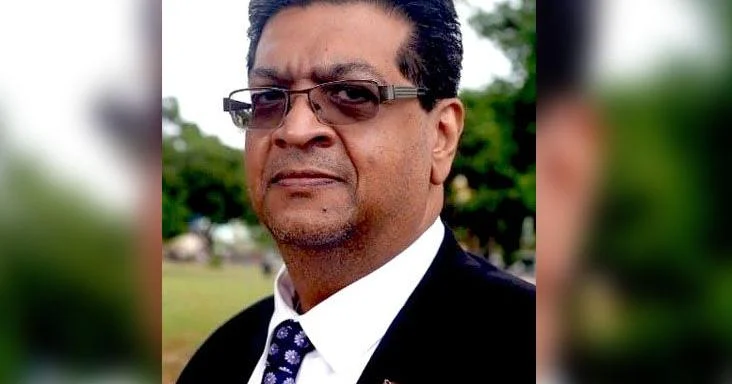By Rushton Paray
Copyright trinidadexpress

Few topics spark stronger debate in this country than CEPEP and URP. Everybody knows somebody who worked in one of them. For some families they are a lifeline, for others they are a waste of taxpayers’ money. The truth is that both programmes lost their way. CEPEP and URP started with clear missions but became political job banks, more about votes than empowerment.
CEPEP was designed to keep the environment clean while giving people a foothold in the labour market. At the start, communities benefited. Roadsides in Sangre Grande were cleaner, drains in Rio Claro were kept clear, and parks in San Fernando were properly maintained. The programme created pride in small villages where employment opportunities were scarce. Then politics got in the way. Instead of preparing contractors and workers to graduate into the mainstream economy, CEPEP invented its own class of “CEPEP contractors” who existed only within the programme. They became gatekeepers of jobs and favours. Instead of a training ground, CEPEP became a holding pen. A better design would have created general contractors, not permanent CEPEP contractors. Their first job would be a CEPEP contract, lasting no more than three years. During that time their workers and management would train in health and safety, project management, accounting, tendering, and customer service. At the end of 36 months they would graduate, ready to bid for contracts with regional corporations, WASA, T&TEC, or private businesses. Then a new batch would take their place. Instead of locking people into dependency, CEPEP would be a revolving door of training, growth, and opportunity. That is how you move people from cutting grass along the Churchill Roosevelt Highway to running legitimate contracting firms with their own equipment and staff.
THe URP has a longer history but the same problem. It was created in the 1980s as a social safety net, not a permanent job scheme. The idea was simple. Give temporary jobs to those in crisis and carry out small-scale community works. URP gangs cleared drains after floods in places like Bamboo and St Helena, patched roads in rural districts, and repaired the homes of the elderly in areas like Mayaro and Sangre Grande. The goal was relief, not permanency.
Over the years that mission collapsed. URP became another political tool. Everybody knows the stories of ghost gangs, padded paysheets, and workers who collected salaries without lifting a shovel. Instead of being the first responders after floods in Oropouche or fires in Laventille, URP often sat idle while communities waited weeks for help. The result is that billions of dollars spent over decades have left little to show in terms of skills, outcomes, or community resilience.
The fix is clear. URP should be placed under the Ministry of Social Services, not Works. That is where its real mandate belongs. Its role should be to respond to natural disasters, repair homes for the elderly, and assist with schools and community centres in need of urgent work. If a flood hits Penal, families should expect URP workers at their doors within 24 hours. If an elderly woman in Arima needs her roof patched before the rainy season, URP should be there. That is the way it was designed, and that is the way it should operate again.
The country continues to spend hundreds of millions each year on these programmes, yet rivers are still clogged, drains blocked, and families often left to fend for themselves after disasters. The measure of success cannot be the number of people on the payroll. It must be the number of contractors who graduate into the wider economy, the number of homes repaired for senior citizens, and the speed of response after crises.
Fixing CEPEP and URP does not mean shutting them down. It means returning them to purpose. CEPEP must become an incubator for small businesses, giving them the training and experience to compete outside of government contracts. URP must once again serve as a short-term social relief programme that tackles the needs of the most vulnerable and responds in times of crisis. Both must be audited not just for financial leaks but for impact on people’s lives.
For too long, governments of every colour have allowed these programmes to become political plantations. That is why the same complaints resurface every election cycle. The programmes themselves are not the problem. The way they are run is the problem.
Trinidadians are among the most resourceful people in the world. CEPEP and URP should showcase that, not trap people in dependency. If we are serious about lifting people out of poverty and moving them towards independence, then these programmes must stop serving politics and start serving their true purpose.
Stop the political plantation. Stick to the mission. Empower people. That is the only way CEPEP and URP will mean something beyond the next election.
I am committed to fostering meaningful dialogue and sharing diverse perspectives to better understand the issues that shape our everyday lives. To this end, I have established a WhatsApp Channel where I will thoughtfully present my viewpoints in a centralised space. I warmly invite you to join and explore these insights, and I encourage you to share this invitation with others who may value engaging with this perspective.
The author is former Mayaro MP



